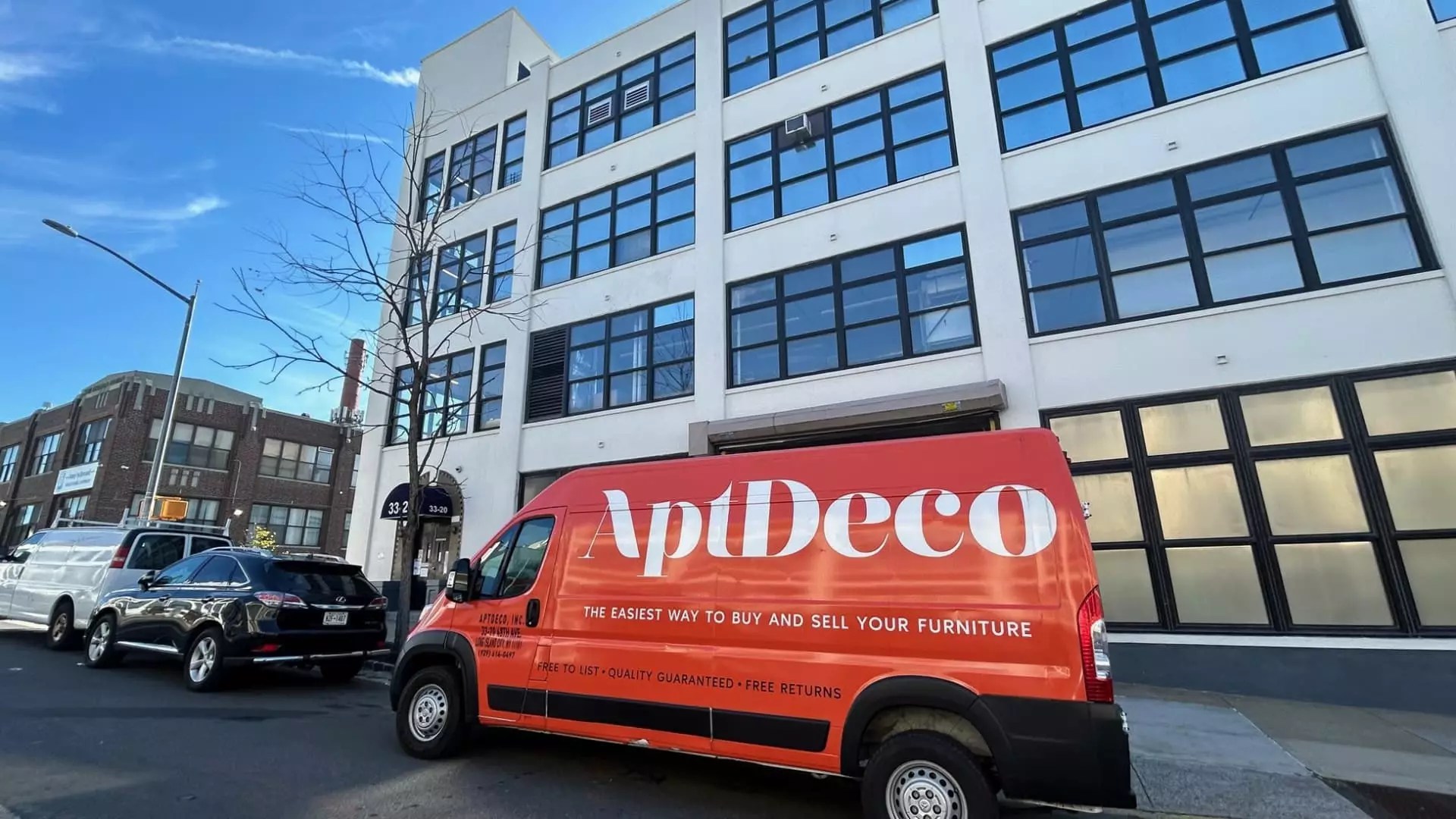The increasing volume of furniture waste poses a significant challenge as both consumers and businesses strive to mitigate their carbon footprints. In the United States, the staggering figure of around 12 million tons of discarded furniture annually, as reported by the Environmental Protection Agency, raises immediate concerns regarding environmental impact. Notably, a considerable portion of this waste consists of items less than fifteen years old. The dilemma is exacerbated by the complexities associated with recycling furniture, notably the logistical challenges of selling and transporting large items. This situation creates a pressing need for innovative solutions that can address both consumer needs and environmental responsibilities.
The thriving online resale market for clothing, exemplified by platforms such as Poshmark, Depop, and Thredup, starkly contrasts the furniture sector’s struggles. The inherent complications arise from the bulkiness of furniture items, which render the simplicity of online thrifting nearly impractical. While platforms like Craigslist and Facebook Marketplace offer options for listing used furniture, the onus of operational logistics—namely the pick-up and delivery—rests heavily on the buyer and seller. This creates not only inconvenience but also safety concerns, as strangers meet in private spaces.
In light of these challenges, AptDeco emerges as a promising alternative. Based in New York, this innovative startup has developed a user-friendly online marketplace specifically tailored for buying and selling pre-owned furniture. AptDeco distinguishes itself by offering pick-up and delivery services, thereby mitigating the logistical headaches commonly associated with furniture resale.
Moreover, the company has formed strategic partnerships with renowned retailers such as West Elm and Pottery Barn. Through these collaborations, AptDeco facilitates the resale of floor models and returned items directly from these retailers. This arrangement not only streamlines the returns process but also contributes to environmental sustainability. Reham Fagiri, AptDeco’s founder and CEO, articulates the environmental benefits succinctly: “By extending the lifecycle of furniture, overall it’s just better for the environment.” The commitment to sustainability is evident, as it reduces deforestation and the carbon-intensive supply chain tied to new furniture production.
For large furniture retailers, the issue of waste generated from returned goods is substantial, encompassing costs and emissions associated with reverse logistics. AptDeco transforms this problem into an efficient solution by immediately listing returned items for resale when a return is requested. This innovative model eliminates the need to transport items back to distribution centers, allowing for a direct line from the previous owner to a new buyer, which is not only beneficial for the environment but also enhances customer satisfaction.
AptDeco’s approach results in rapid sales, with many items priced for quick movement. The platform utilizes resale data to price items effectively, often achieving sales within a week of listing. This efficiency is coupled with an attractive price point: consumers can expect discounts of up to 50% compared to new furniture options.
Despite its unique service model, AptDeco does charge for its services, earning a commission that ranges between 15% to as much as 60%, varying based on brand reputation, product condition, and various other factors. The operational scope of the company spans most of the continental United States, which enhances its appeal to investors. AptDeco has garnered support from notable investors including Initialized Capital, Comcast Ventures, Y Combinator, and others, accumulating a total of $14.5 million in funding.
Environmental impact is also a key part of AptDeco’s narrative. Since its establishment ten years ago, the company claims to have offset over 19 million pounds of carbon dioxide, equating to the emissions of approximately 6.5 million cars removed from the roads. This achievement underscores the potential for businesses that contribute to a circular economy, especially in an era increasingly defined by climate awareness.
As the conversation surrounding sustainability intensifies, AptDeco exemplifies how innovative business models can address practical challenges while making a meaningful contribution to environmental conservation. By reimagining furniture resale through efficient logistics and strategic partnerships, AptDeco is not only reshaping consumer behaviors but also setting a compelling precedent for the circular economy to flourish. Moving forward, such models may be critical in advancing efforts to reduce furniture waste and promote sustainability across various sectors.


Leave a Reply